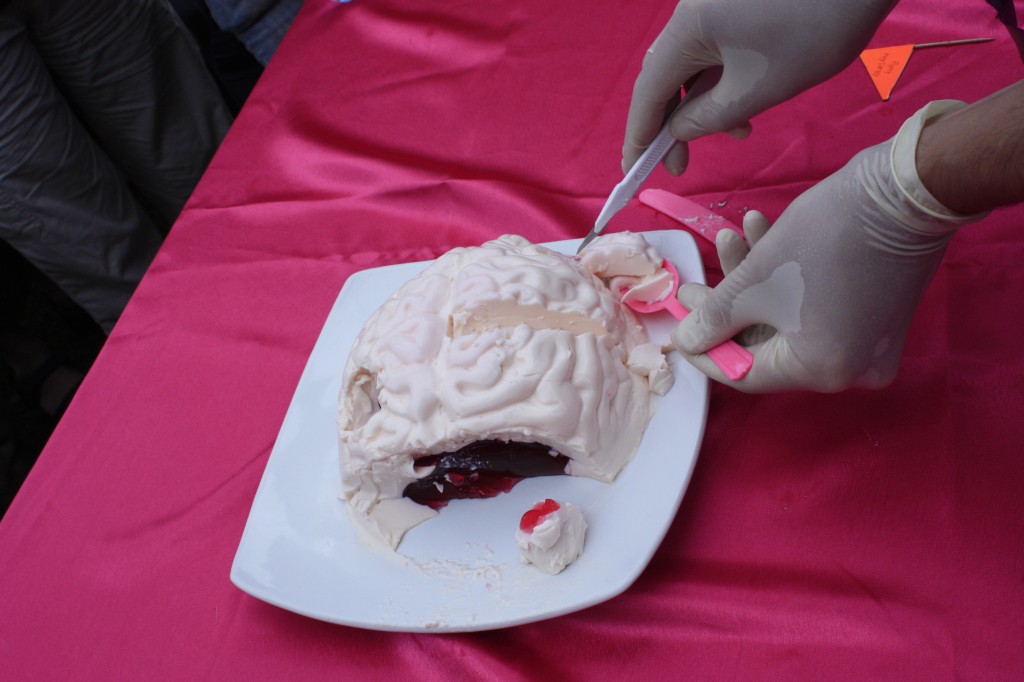Carefully carving through the surface of the shiny, quivering pink cortex with his scalpel, neuroscientist Guy Billings traced out a small area of the marvellous human cerebrum. “This,” he said, “is Broca’s area – crucial for the ability to produce language. People who have suffered damage to this region have lost the ability to speak.” The crowd peered in for a closer look.
“Let’s just cut that out then,” said Guy, and plopping the pink shiny piece onto a plate, he handed it out with a shiny pink spoon. It was instantly devoured (and declared delicious).
Don’t worry, this was no cannibal show. The ‘brain’ in question was fashioned by Guerilla Science director Jenny Wong using vanilla panna cotta as white matter and raspberry jelly for grey matter, this life-sized jelly brain was one of three confectionary cortexes we had brought all the way from Jen’s London flat to the Green Man music festival in Wales.
Each day Billings, a researcher at University College London, drew spontaneous crowds of several dozen onlookers with the shiny brains displayed on pink trestle tables in Einstein’s Garden. Intrigued, tantalised, and often grossed-out, guests gorged on bits of orbitofrontal cortex and parietal lobe as he performed al fresco brain surgery, taking them through the history of neuroscience and how we have come to understand the brain – through trial and sometimes regrettable error.
Those intrigued by the taste of brain, could find out more nearby. Food scientists Rachel Edwards-Stuart and Becki Clarke of Nottingham University explored the multifaceted nature of ‘taste’ with a sensory feast of colourings, flavours, and molecular gastronomical treats. These revealed how what we think of as a single sense is actually influenced by what we can see, hear and smell.
Sampling tester strips to search for ‘supertasters’, our diners discovered that not all of them could taste a synthetic chemical and were given a new – and highly tactile – appreciation for the fact that we are all unique organisms with our own suite of sensory characteristics, a truth that many of us can easily forget.
Edible education is a rare treat – especially in the setting of a music festival. But adding a sensory element makes the experience all the more memorable than a straightforward lecture.
“I’m going to close by addressing a popular myth about the brain – that you only use ten per cent of it,” Billings said, as he carefully sliced up the brain. “You need every bit of your brain – it’s all important.”
